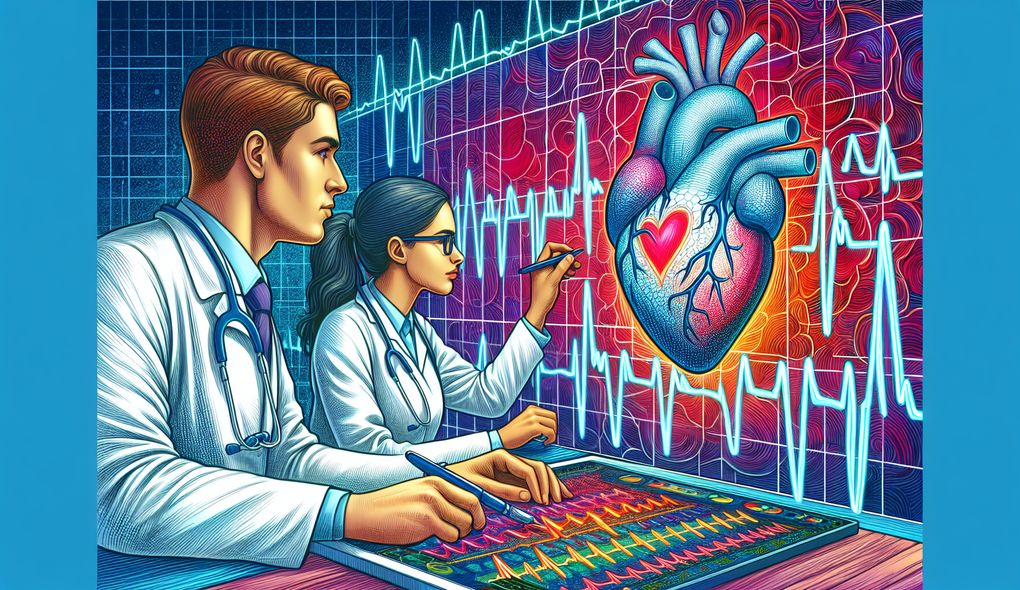How do you prioritize your tasks when managing patient care?
JUNIOR LEVEL

Sample answer to the question:
When managing patient care, I prioritize my tasks by first assessing the urgency and severity of each patient's condition. I triage patients based on their medical needs, ensuring that those with life-threatening conditions are treated immediately. I also consider the complexity of the treatment required and the availability of resources. Additionally, I communicate and collaborate with other healthcare professionals to coordinate care and prioritize tasks effectively.
Here is a more solid answer:
When managing patient care, my solid approach involves a systematic and evidence-based prioritization process. I start by assessing the severity and urgency of each patient's condition, considering the risk factors, symptoms, and potential complications. I utilize my in-depth knowledge of cardiac anatomy and electrophysiology to make informed decisions. For diagnostic procedures, such as electrocardiograms (ECGs) and electrophysiological studies (EPS), I efficiently schedule and perform them based on their relevance to the patient's condition and treatment plan. When it comes to interventional procedures, such as catheter ablations, I prioritize them based on the patient's needs and available resources. In high-pressure situations, I rely on strong problem-solving skills to make quick decisions while paying exceptional attention to detail and maintaining manual dexterity. Effective communication and collaboration with other healthcare professionals are crucial in coordinating patient care and ensuring tasks are prioritized correctly. Lastly, I am committed to ongoing professional education and training to stay updated with the latest advancements in cardiac electrophysiology.
Why is this a more solid answer?
The solid answer provides more specific details and examples that demonstrate the candidate's expertise in cardiac electrophysiology and their ability to apply their skills in real-life situations. The answer also highlights the candidate's commitment to ongoing professional education and training, which is important in a rapidly advancing field like cardiac electrophysiology. However, the answer can be improved by providing more specific examples of how the candidate has utilized their problem-solving skills in high-pressure situations.
An example of a exceptional answer:
When managing patient care, my exceptional approach involves a comprehensive and patient-centered prioritization process. I start by thoroughly assessing the patient's medical history, current symptoms, and risk factors to determine the urgency and severity of their condition. Drawing on my extensive knowledge of cardiac anatomy and electrophysiology, I make informed decisions regarding diagnostic procedures, ensuring that each test is relevant to the patient's specific needs and treatment plan. In high-pressure situations, I rely on my strong problem-solving skills and ability to make quick decisions to ensure timely and effective care. I pay exceptional attention to detail and maintain manual dexterity during interventional procedures, such as catheter ablations, to optimize patient outcomes. Effective communication and collaboration with a multidisciplinary team are essential in coordinating care and prioritizing tasks. Furthermore, I am committed to ongoing professional education and training, actively seeking out the latest advancements in cardiac electrophysiology and participating in research studies and clinical trials to contribute to the field's growth and improve patient care.
Why is this an exceptional answer?
The exceptional answer demonstrates a comprehensive understanding of prioritizing tasks when managing patient care. It includes specific details and examples that showcase the candidate's expertise in cardiac electrophysiology and their ability to apply their skills in real-life situations. The answer emphasizes the candidate's patient-centered approach and commitment to ongoing professional education, as well as their involvement in research studies and clinical trials to contribute to the field's advancement. Overall, the answer provides a well-rounded and exceptional response to the question.
How to prepare for this question:
- Review and refresh your knowledge of cardiac anatomy and electrophysiology to ensure a solid foundation for prioritizing tasks related to patient care.
- Practice scenarios that require quick decision-making in high-pressure situations, focusing on problem-solving skills and attention to detail.
- Develop effective communication and collaboration skills by engaging in interdisciplinary discussions and teamwork exercises.
- Stay up to date with the latest advancements in cardiac electrophysiology through continuous professional education, attending conferences, and engaging in research opportunities.
What are interviewers evaluating with this question?
- In-depth knowledge of cardiac anatomy and electrophysiology
- Proficiency in diagnostic procedures
- Ability to perform interventional procedures
- Strong problem-solving skills and the ability to make quick decisions in high-pressure situations
- Exceptional attention to detail and manual dexterity
- Excellent communication and interpersonal skills
- Commitment to ongoing professional education and training

